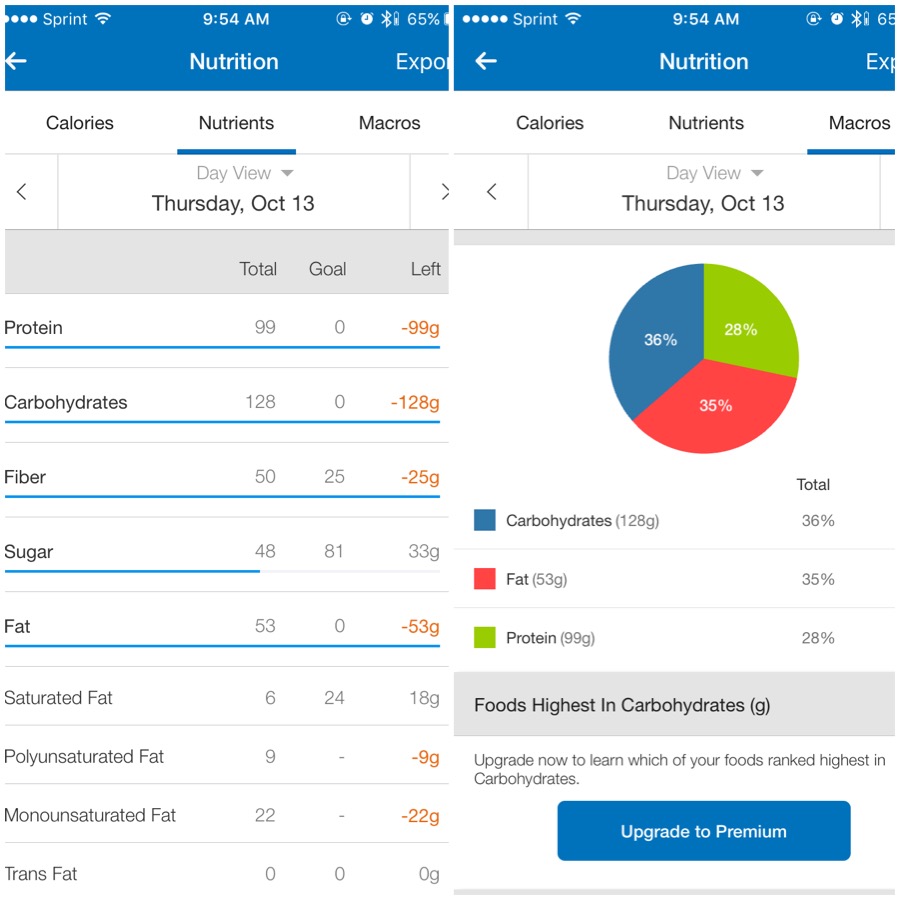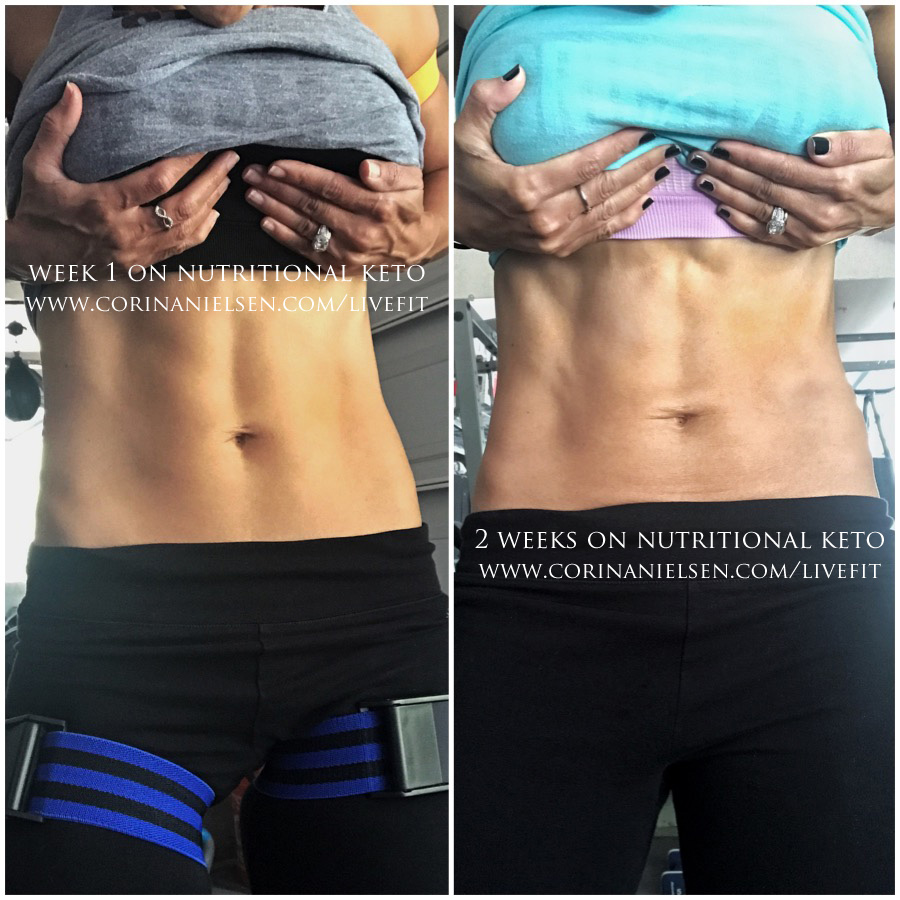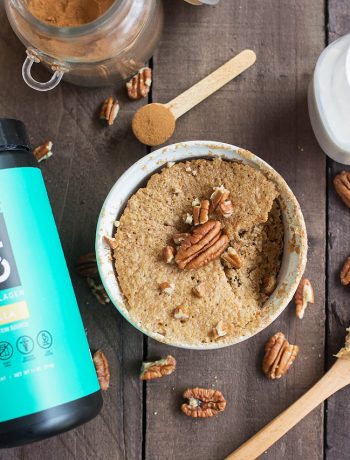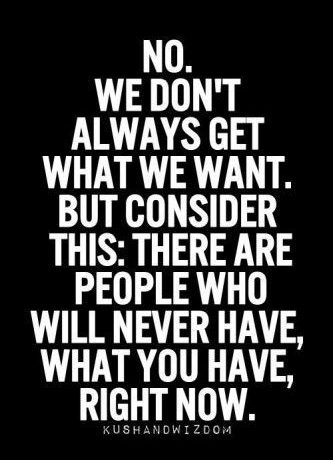“Adopting a ketogenic lifestyle can be an extremely difficult process, but also well worth it for those with autoimmune disease, neurological disorders, seizures, cancer, or even if you are looking to lose weight!”
As I mentioned in my previous dietary post, the reasons I even considered a ketogenic lifestyle was solely for medical reasons. Whatever was going on in my body and within my cells was becoming more and more dysfunctional and prevalent as each week passed. I had reduced pain naturally over the last 7-8 months, but knew I could DO better. I knew I could BE better. I knew I could FEEL better. I knew I could reduce the other symptoms and issues being caused by my disease(s). So instead of turning to further treatments and therapies done on my outsides, I opted to go against everything that was comfortable to me and change what was going on INSIDE my body. I decided to attempt a ketogenic adaptation where the switch within my body and brain would go from fueling and running on glucose/carbs to running and burning fat.
This process is not easy though friends. It’s not a quick flip of switches that can be done with the snap of your fingers. Most people run into LOTS of bumps in their keto adaptation journey, they have many days of feeling like absolutely crap, never knowing if they are actually even fully keto adapted/efficiently creating & using ketones for energy and to burn fat, popping in and out of ketosis, still have unstable blood glucose levels, continue to have cravings and episodes of binging, feeling like crap (yeah, I’m aware I mentioned that but it needs to be mentioned a few times because that struggle is REAL… more on that in a bit), and in the end usually end up throwing in the towel the first week of attempting the adaption because its TOO HARD!
You know what’s harder than implementing a ketogenic protocol?
Living in 24 hour pain, dealing with ongoing issues & symptoms from autoimmune and other diseases, having your day constantly revolve around food (when you are going to eat, what you are going to eat, how long until you get to eat again), having constant surges of energy to only keep crashing an hour later EVERY single day, needing to eat every 2 hours (or less) because your fuel stores (carbs/sugar/glucose) are empty, binge eating, never feeling satiated and totally satisfied after a meal, and for most of the population… jumping from one diet to another desperately trying to lose weight your entire life.
In comparison… trying to adapt to ketosis is a BREEZE!
However, our brains and bodies have run mainly on glucose/carbs/sugar our entire lives’. As kids we are given big carb filled breakfasts of pancakes and waffles and cereal, ate spaghetti and pasta and mac n cheese regularly, loaded up on candy any chance we had, drank soda, and we were fed every delicious sugary sweet our hearts desired. Then as adults, most people are then taught carbs are bad and make you fat (100% not true by the way, I was eating over 300 grams of carbs with only a 3-4 pound weight difference. STOP demonizing carbs people, they have their time and place in nutrition). So as adults begin to restrict carbs in their diets hoping they lose weight. The problem here is people will reduce that macronutrient without replacing it with another so they end up in a caloric deficit their entire lives’, kill their metabolism, and continue the vicious dieting merry go round. In the end, most people ALWAYS come back to carbs though. Why? Because its what our brains are ‘used’ to using for FUEL. Our bodies have been trained to think it can ONLY run efficiently on glucose, nothing else.
However, in a ketogenic protocol that carb switch needs to be turned OFF, rerouted, and then all things FAT need to be turned ON. Its during this time that your body will probably go CRAZY attempting the switch and you’ll feel like you want to die. Literally, you will feel like death. I know I sure did on a few occasions this past month!
There is a reason for that… our bodies are literally going through withdrawal from the lack of glucose and it has no idea what it needs to do…. YET! Your body needs to become accustomed and transitioned over to looking for fat instead of glucose to fuel iteself. Your body needs to get drained of the majority of glucose in each cell FIRST. Then it will begin to search for fat to burn. For some, this adaptation process can take a couple of weeks and for others it can take months and months.
The ease of this adaptation phase will greatly depend on a few factors:
- How healthy is your metabolism when you start to adapt? Have you been dieting your whole life, restricting calories, and now your metabolism is completely compromised and deranged?
- What are YOUR reasons for wanting a ketogenic protocol? Is it strictly weight loss or for overall health and well being? Is it for medical conditions?
- Do you have other underlying health conditions? Are your adrenals, thyroid, and hormones all balanced and healthy?
- Do you have unknown food allergies, sensitivities, or intolerances that cause bloating and stomach discomfort on a regular basis?
- How much stress do you have in your life? How does your body handle stress?
- Do you work night shift hours which disrupt your circadian rhythm and sleep cycles?
- When you do sleep, is it good quality sleep?
And perhaps one of the most important things to consider BEFORE adopting a ketogenic protocol…
- Are you truly committed to giving this a fair shot? Are you 100% ready to go through all of the ups and downs you may experience while transitioning? Are you ready to make ketosis your LIFESTYLE?
If you aren’t and are simply looking for another quick and easy fix, exit stage left. For ANY “diet” or nutrition program to truly work longterm, it has to be something you are fully committed to. If you want the BEST results that produces LIFELONG changes from the inside out, it has to be about more. It’s a mindset. It’s a knew way of eating AND living AND thinking. Again for me, trying keto was never about losing weight or changing my body composition. I was fed up with not feeling my absolute BEST each and everyday due to my continued medical issues. I will always strive to live the most optimal quality of life that I possibly can which is 10X more difficult when you live with chronic diseases. I was all in and my results have shown my 110% commitment!
For those wanting to change their lives’, health, AND looking for weight loss… stick around! Weight loss HAS been a byproduct of a keto “diet” for me, so much so that I actually needed to continue INCREASING my calories because weight was coming off way too fast. You NEVER want weight to just melt away. The faster the weight comes off, the more likely it is to come back (and then some) if you ever jump off the protocol. Slow and steady ALWAYS wins the race!
So how did I start my keto adaptation???
Some people jump right in to a new lifestyle, but personally I’ve found that making small changes over a period of time lessen the blow and effects from drastic changes (as with ANY “diet or nutritional approach). When I decided to turn to nutrition and what I was eating (and not eating) for healing my body, it was definitely done in stages which I think made each transition that much easier for me. Small changes can make a big difference and patience is absolute KEY for transitioning into ketosis.
Here were the stages I took leading up to my keto adaptation:
Step 1: Gluten and Dairy Free
Step 2: Paleo
Step 3: Wahl’s Paleo (targeted nutrition program for autoimmune diseases)
At this point, my research on a ketogenic diet began because I was already feeling better AND knew I could DO even better (I’m definitely a DO-er). I had read over and over again that a ketogenic lifestyle was not only greatly helping those suffering from multiple sclerosis and autoimmune diseases, but neurological & central nervous system dysfunction/diseases and cancer as well. Since cancer THRIVES on sugar/glucose, the more carbs you eat the more likely you are to actually be feeding the disease for it to live and grow in your body. Remove the carbs/sugar and you can help cancer cells die off. For other medical conditions, fat is actually the preferred source of nutrients to help create NEW healthy cells.
As mentioned before, the problem with simply going “low carb” though is most people aren’t replacing that macronutrient with another, like fat. Fat is actually the preferred method of fuel for our brain which is why setting things back to how we were originally designed is SO difficult. Did you know our brains are made up of 60-70%% FAT??? Each cell in our body is made up of FAT as well. For most people, our brains are actually begging for more healthy fat nutrients! That being said, when I saw over and over again cases where people went from being wheelchair bound from either pain OR neurological conditions to having the ability to walk and function and get their lives’ back??? Yup, sign me up! I was in and ready to see if I would be effected remotely the same way.
So began a month long process for me to STOP using and burning carbs to producing KETONES and burning fat!
Step 4: My Ketogenic Transition
I hadn’t tracked a single macro/calories in a couple of years, but needed to have a baseline to gauge how much I should be intaking on this new protocol. I needed some place to start that was more accurate than guessing how much I was eating and what my current macro profile looked like. Again, because weight/fat loss was NOT my goal, I opted to start at maintenance calories instead of a deficit.
- In order for me to have the best idea of where my caloric maintenance was at, I spent about a week eating EXACTLY as I had been this entire year. My weight has been stable, not gaining or losing so an estimate of my current calories would be a good indication of my “maintenance”. Same foods were eaten, same portions, and varied macros. However I tracked ALL of it. I logged into MyFitnessPal, planned, portioned, weighed, and ate each day. Not surprising to me… I was already eating ABOVE maintenance (with no weight gain) despite my chronic illness and lack of activity… my metabolism is on FIRE! Why? NOT dieting over and over and over and over again my entire life! See a theme here in regards to how I feel about dieting???
- With a decent overview of my current caloric intake and macro breakdown, I decided to jump into the process. First step for me… INCREASING fat, LOWERING carbs AND protein. Here is an overview and breakdown of my starting macros:

- if you choose to not take this route, you could also use an online calculator like KETOGAINS to give an estimate of your macros. This is NOT my recommended method because I rather see someone have a more accurate overview of how they have already been eating.
and now begins the actual ketogenic transitioning part…
- Time to shift those macronutrients from carbs to fat AND lower protein! I needed to eventually aim for a macro breakdown of roughly 75% fat, 15% carbs, and 10% protein. Because I didn’t want to shock my body too much too soon, I went to 60% fat, 19% carbs, and 20% protein to start out with for a few days to see how my body would respond.

- After a couple of days transitioning, I also began testing my ketones (blood using a dual glucometer and ketone test strips is the ONLY method I encourage you to use). Its nice having an idea of how my body was responding and knowing how close I am to fully adapting to ketosis.
- Every few days I would continue to increase fats and lower carbs and protein a bit. This was a fairly difficult time for me. Even though my calories were relatively the same as before the transition, the lack of carbs was making me HUNGRY! I also never felt full enough, noticed I was grazing all day, tired, lethargic, moody… I felt like I was dieting and it was NO fun! At this point I already began thinking “OK keto sucks. I want my carbs back.”
- I experienced a handful of days where I felt like absolute SHIT. I had heard about the “keto flu” but never really paid too much attention to it. I would have an amazing amazing day with minimal pain and virtually no symptoms (literally felt like I could run a marathon), but then a horrible day where I didn’t want to move. With each shitty day I was having, I noticed a pattern: extreme thirst (even times where I was woken up because of my horribly dry mouth), dizziness, some nausea, vertigo, lethargy, headaches, body aches… I was nearly ready to throw in the towel! How is this going to be worth it again????
Oh but it is….
- After the initial shock wore off and my body slowly began to adjust to each macro change, one of the first things I noticed was ALL of the pain I was having in my ankle, knee, hip, and feet was just about GONE. I wasn’t limping anymore and could walk longer distances. This is a HUGE win for me. It was at this point where I felt so strongly this was the right path I needed to take!
The downside for me (probably a positive for the majority of the world)… I was also losing weight DESPITE the caloric increases. I felt leaner as each day passed, clothes quickly began to feel different, and I could physically see my body morphing right before my eyes. Not my intention, so lets keep increasing those calories until I stabilize my weight. Who knew I would be reverse dieting without even working out? I was shocked and happy I was actually able to increase my daily food 🙂 More food and feeling better… WINNING! Take a look at roughly two week difference:

See what I mean? YUCK. YUCK. YUCK. At first I was like “Oh hey… by product of keto is I’ll have abs! Fun!” Then I was like, ewe. Far too lean for my liking. I was melting away and hated how my body was beginning to look. I strive to look HEALTHY… not underfed, malnourished, shrunken up, and SKINNY!!! I’m not about those ultra skinny goal here ladies. I pick STRONG over skinny any day of the week! So after a couple of solid weeks of slowly adding calories in to STOP losing weight and making the macro shift to high high fat, this is what my macros look like a couple of days ago:

I had gone from eating roughly 1,300 calories a day to eating 1,700 calories just like that, with NO weight gain at all (thank you thank you thank you again REVERSE DIETING)! At this point I felt pretty strongly that I was nearly completely keto adapted so made the decision to play with macros a bit more. I wasn’t happy with how low my protein was (felt like I was losing muscle) and also wanted to see if I could increase carbs just a little bit so I could incorporate a bit more fruit in each day. If I happen to pop out of ketosis every once and a while, I’m ok with that! Keto is strict, but when its a lifestyle it HAS to be geared towards YOUR life and what will work for YOU!
Thats the beauty of keto or any nutritional protocol for that matter. There is no magic number, no one set of “rules” for each and every single person. Macro goals and totals are hugely individualized and subjective. We have our own set of personal goals, body composition goals, genetics, epigenetics, micro biome, and environmental impacts. My goals are very different from someone looking soley to lose weight!
My list of priorities when I decided to try this nutritional ketogenic lifestyle were as follows:
- 9 cups of veggies a day, no matter what
- dairy free, gluten free, and nearly completely grain free (I NEED popcorn in my life here and there)
- meeting HIGH fat requirements using high quality sources such as olive oil, avocado oil, flax oil, MCT oil, coconut oil, ghee, and high fat ratio proteins
- cutting out all processed foods (because of my soy intolerance and soy is in EVERYTHING)
Immediate keto plans for me now that I am keto adapted:
- continue to slowly increase protein each day to maintain muscle, maybe even build if I continue to feel better
- introduce “carb up’s” or carb re-feeding occasionally to ensure thyroid and hormones are healthy, possibly attempt to put back on some muscle thats been lost this year
- when I find a new “normal” with my this lifestyle and have a general idea of how much/little I should be eating, STOP tracking macros (tracking indefinitely is NOT a long term healthy lifestyle)
That pretty much covers it all I think! It’s been quite journey this past month and I can’t wait to share the rest of my keto adaptation process. Lots more in the works 🙂
Nutritional Ketosis: The PITFALLS & SUGGESTIONS (coming soon)
Nutritional Ketosis: The FULL ADAPATION (coming soon)
Nutritional Ketosis: What I’ve Learned (coming soon)
To get a glimpse of the foods and all of the FAT eating I’ve been doing, follow me on INSTAGRAM! Daily ideas and recipes will be shared regularly!




9 Comments
Janet Cole
November 12, 2016 at 4:37 pmHi Corina,
I am so excited that you have found a way to help with the pain and symptoms that you have been dealing with. I have offered many prayers on your behalf and see the inspiration that has come your way. I also appreciate all you share on Instagram and here on your blog. I have learned a lot for my own journey. The question I have for you, now that you are in ketosis and all that you have learned about a ketogenic diet if you didn’t need to make the change for strictly health reasons would you take this path?
Shantele Buckley
March 14, 2017 at 7:21 amHi I’ve been interested in keto for a while and I found your ig account and then our website and I’ve literally read through everything with interest. I’m keen to try keto my body loves fats. The problem is I train hard I’m a bikini competition and I struggle to keep weight I I’m super lean even in my off-season my body fat percentage is around 15% the reason I want to try keto is I struggle with lots of digestive issues especially bloating and spouts of the runs (sorry tmi) my diet is mostly nutritiously dense foods I eat a lot of veg lean meats dairy but I also use a lot of artificial sweeteners mainly stevia but I do use others. I find that the more carbs I eat the worse I feel and my digestive issues more. I’m not sure how to start keto I’m not sure what my macros should be. I’m currently on 130p/50f/200c approx 1700 cals I train about 6 days a week weight lifting and 3 cross fit sessions a week of 30mins. Can u possibly help me ? I love your recipes I’m quite good at cooking and I’m not afraid to experiment in the kitchen. I’d appreciate your feedback Hun if you have the time to contact me.
corina
March 16, 2017 at 3:18 pmHi there! I’ve seen competitors in various keto groups and they can definitely do well! If you wanted to continue competing AND give keto a try, I would suggest bringing your carbs down to keto range WHILE adding in more fats (even more if you are wanting to gain/maintain). I’m upwards of 130-150 grams of fat a day right not and maintain (being sedentary and only 5′ tall) on around 1700-1900 calories that come mainly from fat 🙂
Alexis
April 12, 2017 at 8:33 pmI would like to sign up for the newsletter
Vanessa
January 15, 2018 at 10:20 pmYou are honestly an angel from heaven!! You have explained keto in such a easy way and so helpfull with your recipes!!! I love it !! Thank you soooooo much!!!!
Paige
March 31, 2018 at 8:52 amSign me up for the newsletter! 🙂 I am trying to transition into keto and it hasn’t been easy but I feel it will be worth it for health reasons. Hopefully it works!
Eva Wardyla
April 29, 2018 at 11:11 amsign me up for newsletter
Diana Van Norstran
July 20, 2018 at 5:34 pmI am about to have tarlov surgery and not sure about it. Would like to learn more.
Mickey
July 27, 2018 at 10:33 pmVery inspiring blog!